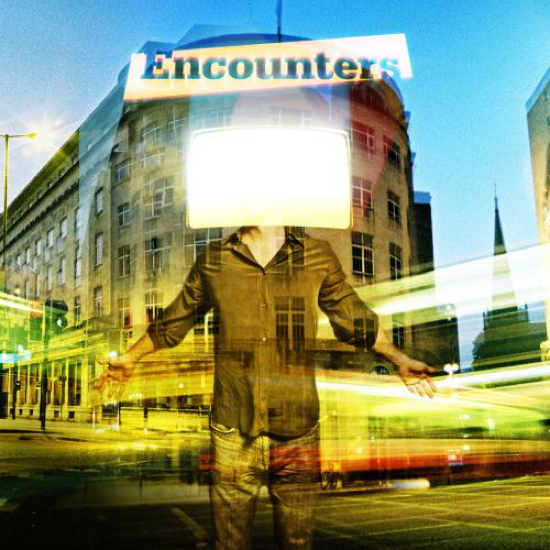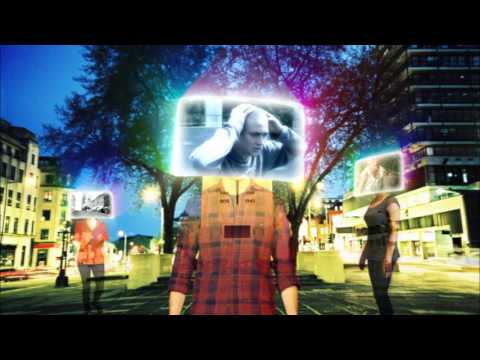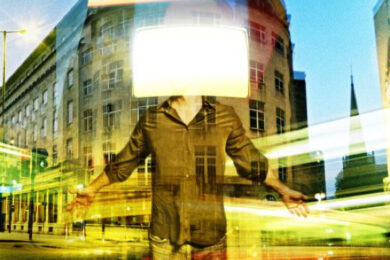"You ain’t heard nuttin’ yet," Al Jolson cheerfully imparts to the joyous crowd in the smoky speakeasy, before bursting into a hip-swinging rendition of ‘Toot Toot Tootsie Goodbye’, and simultaneously originating the motif of the memorable movie one-liner. The Jazz Singer (1927), momentous as the first film to use sound dialogue, gave cinema buffs the original timeless quotation and began a cultural archive that includes "I want to be alone", "I’ll be back" and "You’re only supposed to blow the bloody doors off", among countless more.
Yet Jolson’s words, though celebrated, were not quite accurate. It’s true the sound of the human voice was unheard before cinema’s major technological adaptation, but sound had been part of film almost from its origins. Music accompanied images for decades beforehand and filmmakers, critics and viewers knew that the visual was not simply enhanced with, but was greatly diminished without, the aural.
This idea will be taken up at the Encounters Short Film and Animation Festival, which runs from September 18 to 23 at the Arnolfini and Watershed in Bristol. Wednesday’s schedule includes a masterclass titled To Score Or Underscore, headed by Annabelle Pangborn. A leading figure with the National Film and Television School, Pangborn will be joined by Adrian Utley of Portishead, whose recent work includes collaborating with Goldfrapp’s Will Gregory on a fresh score for Carl Dreyer’s masterpiece The Passion of Joan of Arc (1928).
"In film, image is only half the story," claims Pangborn, suggesting that sound, particularly musical sound, is essential both as complement and counterpoint to moving pictures. Certainly, if we think through cinema history we quickly call up any number of movies whose dramatic effect and affective power would collapse without the action’s accompanying soundtrack. It’s hard to imagine Jaws (1975) without John William’s stealthy strings, or The Godfather (1972) without Nino Rota’s plaintive trumpet, or The Exorcist (1973) without Mike Oldfield’s haunting piano, or The Third Man (1949) without Anton Karas’ carnivalesque zither. Taking the music away leaves only half the movie. Furthermore, if we imagine exchanging one film score with any other we’re left with an ill fit, which (hypothetically at least) shows that each soundtrack is uniquely necessary to its concomitant action.
Conductor Charles Hazlewood described Utley and Gregory’s score for The Passion of Joan of Arc as "a completely original sound work," which it is, and his summary stands for all the best film scores. Of course, Utley’s work with Portishead showed a flare for making sounds that are imagistic, like a Rothko or de Chirico painting. With an enduring love and admiration for the likes of The Ipcress File (1965) and Scorsese’s Taxi Driver (1976), Utley helped compose remarkably spooky, ethereal and unsettling tracks such as ‘Humming’ and ‘Glory Box’. Such songs summoned a sense of alienation, not so much by drawing pictures as by creating impressionistic perceptions. They don’t fill in details, they create shapes and outlines. With Beth Gibbon’s voice fusing Billie Holiday with Barbara Stanwyck and the instrumentation projecting Joy Division’s sparse, open soundscape, the listener can ‘see’ as well as hear the unease.
This synaesthesia, mixing up different senses so that each hovers in perceptive harmony around the other, is how sound and vision combine to work in film. Together they form the warp and weft to round out the dimensions of the viewer’s perception. Without musical accompaniment the images fall flat; without images the music might seem bare. The flat image alone, like a photograph, can have emotional power, as can any musical phrasing, but together they animate each other and make film a close representation of human consciousness.
In an interview last year Utley told the Watershed’s Mark Cosgrove of the inspiration he takes from soundtracks, singling out the work of Bernard Hermann, particularly the melancholic and deliberative Taxi Driver. He says this form of music was in his "rucksack" as he "arrived through the door" with Portishead. One common interpretation of Utley’s work with Portishead is that the songs he helped create seem like movie scores waiting to be filled with dramatic action.
Long before the ‘talkies’, sound and music were used for a fuller effect in cinema, the impact being strengthened by the added sensual span. Early pioneers like Georges Méliès and Charles Pathé added soundtracks to expand upon the action. During the 1930s Walt Disney animations were produced the other way around – the soundtrack was composed first and the images added afterwards (a practice known as ‘Mickey Mousing’). On generating the illusion of actual presence (wherein we think the action takes place before our very eyes) cinema historian scholar Robert Stam notes that, "Music and images mutually anchor and reinforce each other."
We’re often only semi-aware of this play upon our consciousness. To notice, we have to separate the sound from the images (try muting the TV next time you watch a DVD). Utley admits that though he remains enthralled by Hermann’s Taxi Driver score, it slipped him by when he first saw the movie. Yet, as he explains: "It’s so powerful, it’s so completely integrated into the whole aesthetic… It must have done its job."
The fusion of movies and music is always ‘doing a job’ on its viewers, in ways we must unravel to identify. At the Watershed, Utley will share his understanding for the fascinating, imaginative and illusive phenomenon of the film soundtrack and its symbiotic relationship with pictures. Seeing, plus hearing, leads to feeling. Sounds good.
To Score Or Underscore takes place at 2.30pm this Wednesday September 19 at the Bristol Watershed. For a full list of Encounters events, check the festival website.




